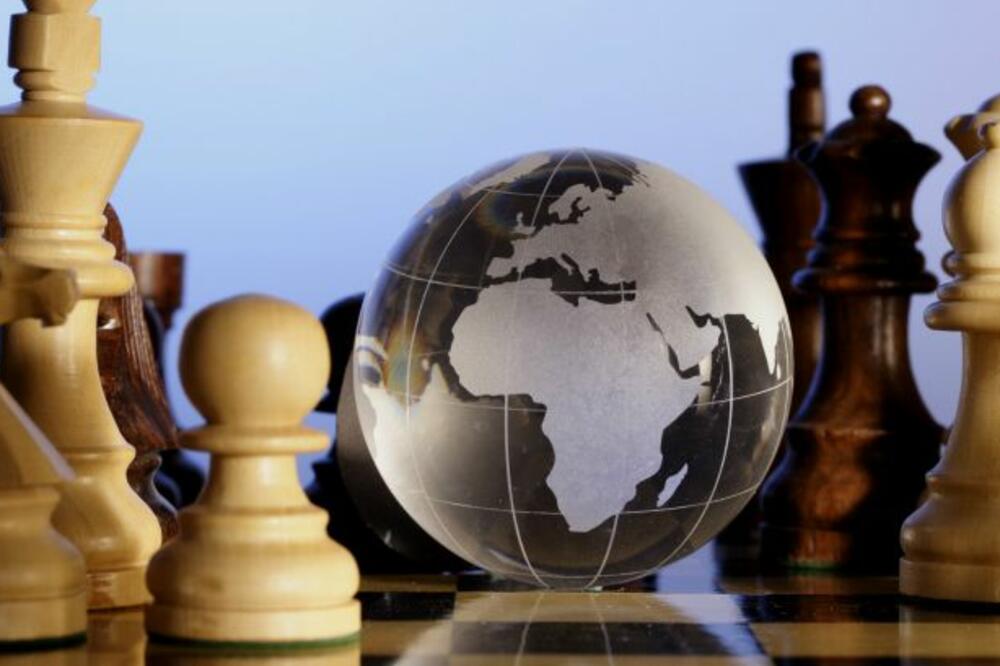Ever since Russia launched its invasion of Ukraine more than two years ago, the West has been desperate for ways to punish Russia without hurting itself in the process. Generally, these attempts have failed.
So far, even unprecedented sanctions have failed to derail the Russian economy, much less force the Kremlin to change its behavior. Instead, Russia has switched to a war economy: it now produces almost three times more ammunition than NATO countries and more missiles than it did before the war.
By contrast, much of the West is facing economic stagnation, not least because of the abandonment of cheap Russian energy sources and the switch to more expensive supplies from other regions. Britain is officially in recession, and growth in the eurozone stalled in the third quarter of 2022 as gas prices rose, forcing the European Central Bank to start raising interest rates to curb galloping inflation. Rising fuel prices have transformed the once economically powerful Germany into the worst developed economy.
European growth is not the only victim of Western sanctions against Russia. The US dollar, already facing "hidden erosion" before the Ukraine war, has apparently lost some of its global dominance, even in oil markets, as countries around the world seek alternatives to the dollar following the West's decision to use finance as a weapon. At the same time, the increased purchase of gold by the central banks of China, Turkey, India, Kazakhstan and Eastern European countries and the increased geopolitical uncertainty contributed to the record price growth.
The desire of the European Commission to confiscate the profits generated by the frozen funds of the Russian central bank will strengthen these trends. Given the central role of central banks in the global financial system, their assets have historically been considered sacred. However, Russian funds - more than two-thirds of which are held by the Brussels-based clearing house Euroclear - have been unilaterally frozen by Western governments, without the approval of the International Court of Justice or the UN Security Council, as required by international law.
Today, when "Ukraine fatigue" weakens Western support for further military and financial aid, the European Commission wants to start using the accumulated interest on frozen Russian assets, which reach 3,25 billion euros a year. According to that proposal, the largest part of these revenues will be used through the European Peace Fund (EPF), which reimburses EU countries for the costs of supplying weapons to Ukraine, and the rest will go to the central budget of the EU and will be aimed at strengthening Ukrainian weapons production capacities.
However, this step is unlikely to help turn the tide of the Ukrainian war. In reality, much more than weapons and money, Ukraine needs new recruits to fill the ranks of its depleted troops. Here the options are limited: even draconian recruitment methods cannot compensate for the growing shortage of soldiers.
What could happen if Russian profits are confiscated is to set a dangerous precedent in international law and deal a blow to Europe's reputation as a champion of a rules-based world order; The "legal route" proposed by the Commission is, pure and simple, legal warfare. It would also send a signal to other countries that their funds are not safe in the West and encourage them to more actively seek alternatives to Western financial institutions and currencies. If this trend continues, the Western arsenal of financial sanctions will be significantly weakened. The constant use of sanctions by the West has already begun to reduce their effectiveness.
Western sanctions not only do not change the behavior of the governments against which they are imposed (be it Russia, Iran, Myanmar or Syria), but in almost all cases they help advance China's commercial and strategic interests. In fact, no country has benefited as much from Russia's attack on Ukraine (and the West's response to that attack) as China.
In addition to expanding the international use of the yuan, Western sanctions against Russia have given China a chance to obtain cheaper Russian raw materials - oil, gas and grain. These goods are transported via safe land routes and are therefore likely to be delivered to the country even in the event of war with the West, easing China's acute concerns about its plans for Taiwan.
China has more than doubled its nuclear weapons arsenal since 2020 and is expanding its conventional military forces faster than any other country since World War II. However, the West is so preoccupied with the idea of punishing Russia that China has managed to avoid even serious attention, let alone deterrence. For example, US President Joe Biden is now trying to "manage competition" with China by emphasizing diplomacy rather than deterrence. His latest budget underfunds the development of key capabilities in the Indo-Pacific region and even cuts production targets for Virginia-class submarines from two a year to just one. Is it strange that China is behind the scenes and oiling the Kremlin's war machine? From the Chinese perspective, the longer the West is scattered, the better.
Make no mistake: China poses a far greater threat to Western interests and the rules-based global order than Russia. Russia's plans are mostly limited to its neighboring countries, while China seeks to take America's place as the world's dominant power. And it may have the means to do so: China's population and economy are about ten times larger than Russia's, and the country spends about four times more on its military than Russia.
The West, which makes up only 12 percent of the world's population, should not underestimate the potential consequences of policies that both promote China's aggressive rise and alienate the rest of the world. Unless the West abandons its policy of strategic overreach with Russia and focuses on its real rival, China, then it is likely to lose its global dominance, including control of the international financial architecture.
The author is a professor emeritus of strategic studies at the Center for Policy Research in New Delhi and a fellow at the Robert Bosch Academy in Berlin
Copyright: Project Syndicate, 2024. (translation: NR)
Bonus video:





